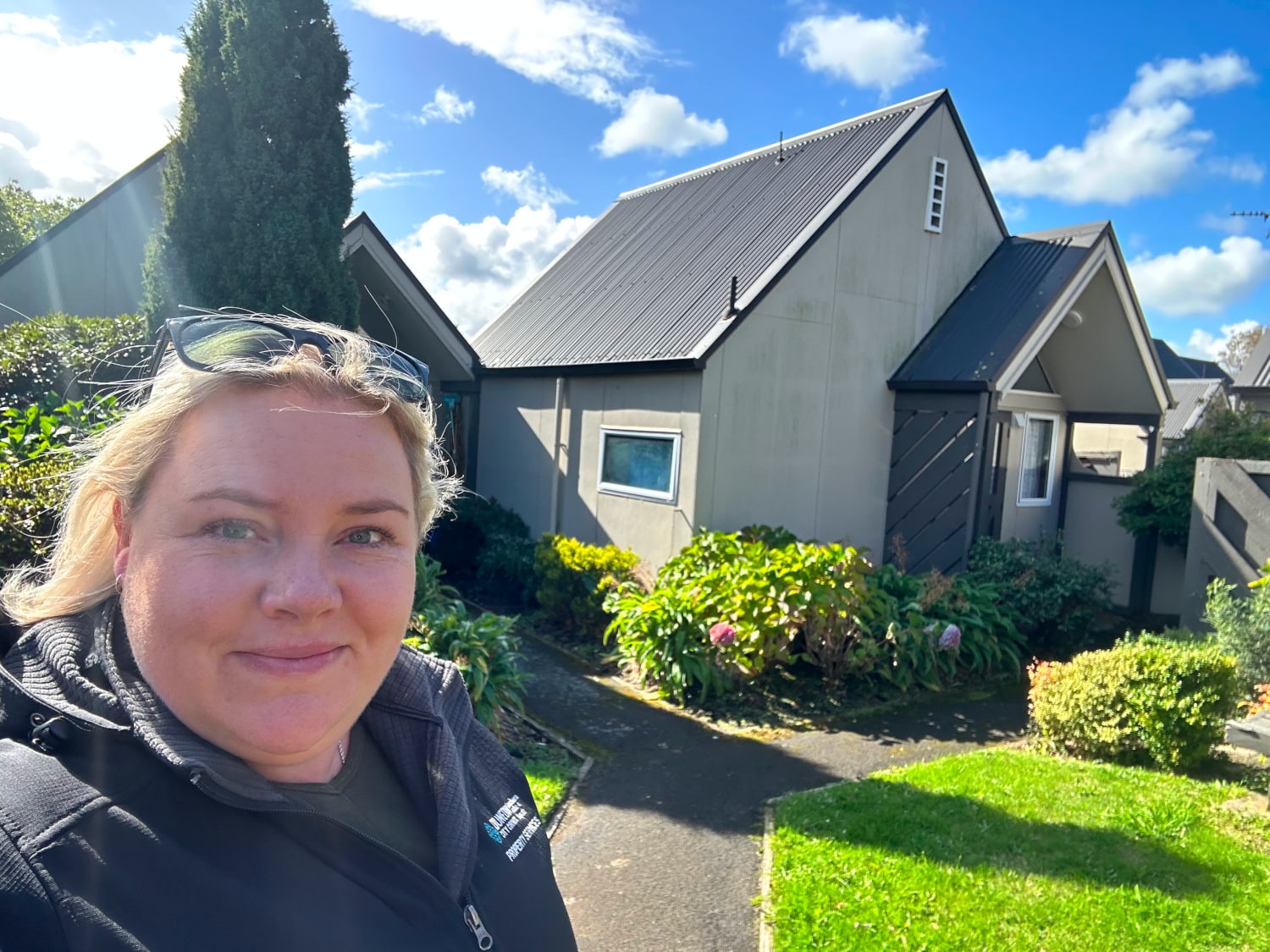After years of early starts managing a supermarket bakery department, Jacqueline Atkinson was convinced to apply for a role with Dunedin City Council as a Tenancy Manager in 2016.
“One of my friends who worked in the property team called me and said, ‘you would be fantastic at this.”
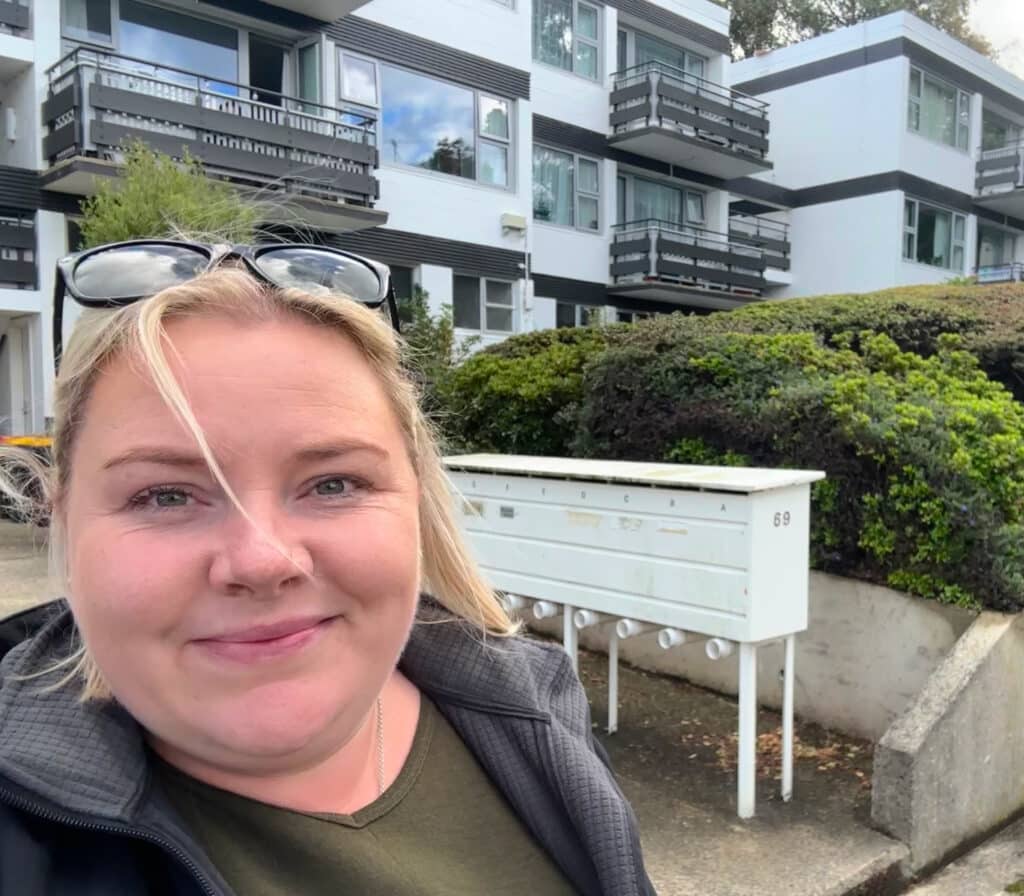
Six years later, her excellence in the critical role of providing housing to many of the city’s more vulnerable residents was recognised at the South Island Property People Awards 2022.
Jacqueline says her manager nominated her for the Young Achiever of the Year Award, but she did not have high expectations of winning.
“My boss approached me and said ‘I want to nominate you for something’,” Jacqueline says.
But I thought, all I do is go and meet with people and find them an appropriate place to live.”
“That’s just me doing my job. But when she sat me down and we went through the application, I found that I did more than I thought I did.”
On the night, she was awed by the achievements of the other category winners, including the winner of that award, Rachel Murdoch of Greenwood Roche. Once that award had been presented, Jacqueline settled back to enjoy talking with the people around her table at the Christchurch event.
“Towards the end of the night my colleague elbowed me and said, ‘they just said your name’.”
She says going up to receive the Anderson Lloyd Judges’ Choice Award was a blur.
“I spoke and thanked people but I don’t remember what I said,” she laughs. “This has come out of left field, but I am super appreciative.”
The judges said Jacqueline was deserving recipient of the award having been impressed by her natural leadership skills,which she has used as a Public Service Association representative and contribution on the PSA Women’s Network Committee. They also noted Jacqueline’s extremely high initiative as well as her “dedication and willingness to try her hand at any challenge given”.
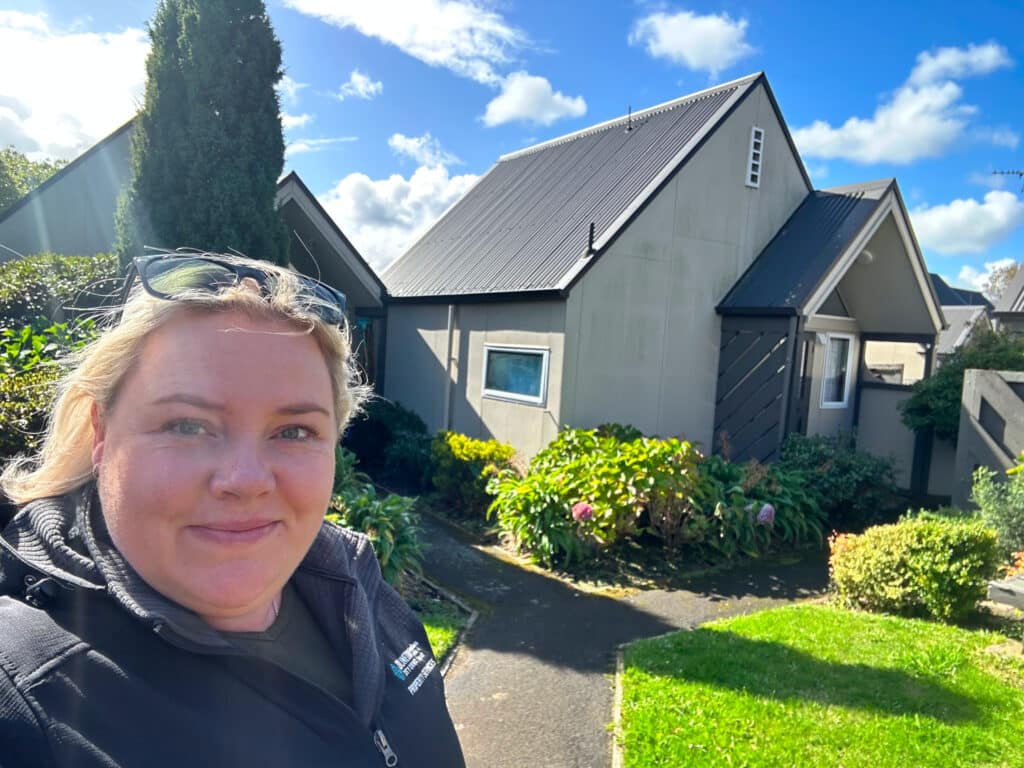
Real people with real needs
Dunedin City Council has 941 units across the city, with many specifically catering for single people and those with mobility issues. It is the second-largest council housing provider in the country.
The units are usually small – some around 30 square metres. They are ideal for single people, and easy to navigate for those with mobility issues, Jacqueline says.
Her favourite part of the role is working through a housing application, hearing their story and being able to come back and get them into a unit.
Then, a few months later, you come back to do a property inspection and hear how well they are doing and how things have changed for them for the better. That is the case for about 95 percent of people.”
She says one tenant who stands out had movement difficulties, and contacted the council after a year of living in a motel.
“He didn’t think we would have anything suitable, but I sat with him and talked about his situation.”
A couple of months later, a single-bedroom flat became available. While some people who view the small units can be dismayed by the compact space, she says the tenant’s face “lit up” when he saw the for the first time.
“He was over the moon. Three months later I went back for a tenancy check and he said, ‘I have my own wee place!’”
Wider horizons
This year, Jacqueline has taken on a new position as a contracts manager for Dunedin City Council’s property services group.
The new role involves managing contracts for “everything from cleaning, through to lift maintenance contracts”.
She notes the biggest contracts the council has are for its housing maintenance and associated services.
“I know the ins and outs of how that works – I can take that on a grander scale and do it for all our other buildings, and make sure we are getting the best bang for our buck, basically.”
She notes that the budgets are ratepayers’ money and “it is best well spent for the people that we serve, whether that is housing tenants, the people who are tenants in our buildings, or the ratepayer.”
“We have to make sure we are really smart with that money.”
That includes supporting local contractors and the local economy as much as possible, Jacqueline says.
She admits that initially she was reluctant to make that move, but also felt she had taken the housing role as far as she could unless she went to another housing provider, such as Kāinga Ora.
“But I love working for the council,” she says
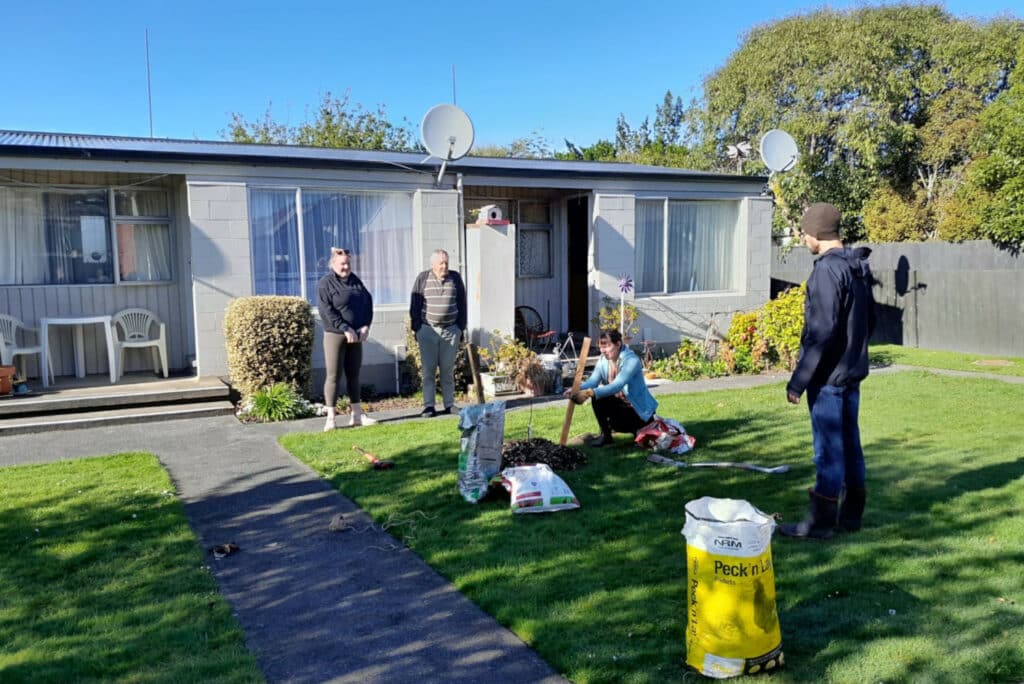
“This was a chance for me to stay and support, not just my team, but the wider property services group.”
“I had to make a hard career decision,” she says. “But there is more opportunity for me to build and grow in the path I’ve taken.”
She was also concerned that it would be a lot more paperwork, with less of the engagement with people that she finds fulfilling. However, she soon realised that it is about engaging and building relationships with suppliers “to get good outcomes for both parties”.
She is also a “firm believer of not sitting in a job” and felt it was time to move on and allow others to gain experience and opportunities.
Jacqueline advises people looking at similar community housing roles that the most important thing is empathy and a good attitude.
“All the Residential Tenancy Act stuff can be taught. It’s actually important to have empathy and people skills, while also being able to read the situation, and knowing what to leave at the door, that is the big thing in this role.”
Maintaining a balanced perspective is also vital in a role where you are dealing with people who find themselves in difficult situations, “quite often through no fault of their own”.
She notes that when people feel heard and are given a chance, the majority will treat the property better. And having a stable home allows people the space to make positive changes in other aspects of their lives.
You’re giving them that chance to go forward and make a better life for themselves. You go back and check a few months later and they are absolutely thriving.”
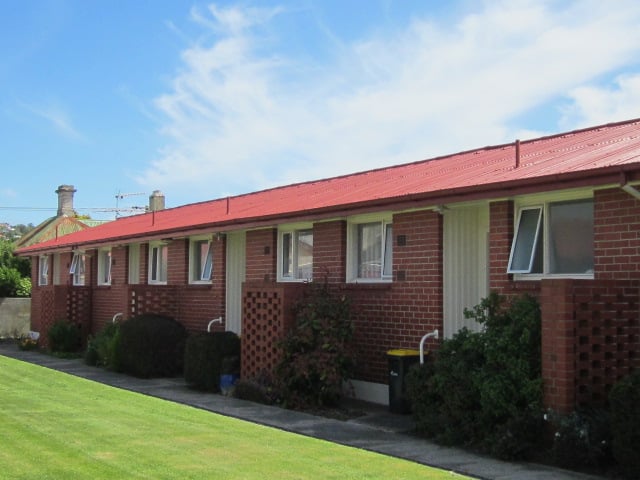
Industry connections
Jacqueline says her experience of the Property Council, which Dunedin City Council is a member of, is that it is a great forum for learning about “all the amazing projects that people are doing”.
“I have been to a few things locally, but meeting all the people at the awards dinner gave me an appreciation for the industry and what it is doing. It is so vast.”
She is keen to be more involved and to share her knowledge and experience in the community housing sector.
“If someone wants to hear what I have to say, I’m more than happy to share my knowledge,” she says. “If there is any insight that I can provide, I’m happy to do that.”
Providing better, and more appropriate housing for people are the key priority Jacqueline thinks needs to be addressed.
Dunedin, well known for its “old and cold” large villas, also needs better quality housing that caters for smaller families, couples and singles.
She notes that landlords have been selling because they cannot afford to meet the healthy home regulations on such old buildings.
More priority needs to be placed on providing homes for people who need more physically accessible housing as well.
“That could be anything from a wet-floor shower, to a ramp, or a fully wheelchair accessible type of unit.”
“We need better housing stock and we need more of it and we need more appropriate housing stock. It is about building the right homes for the population that we are predicted to have and catering for that ageing population.”
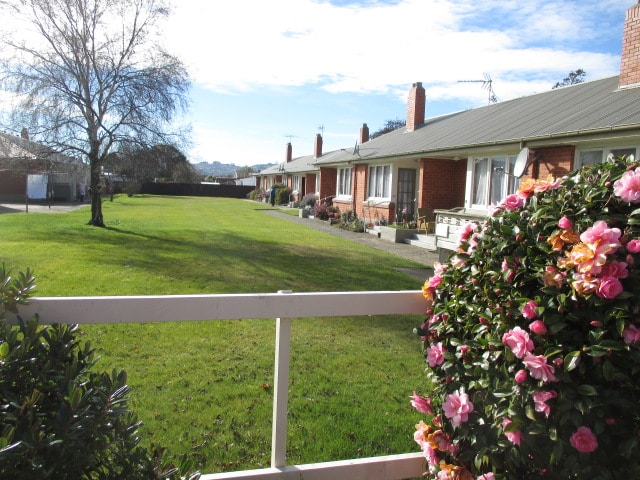
Prioritising those in need
As with other cities nationwide, Dunedin experienced a huge rise in property prices over the past five years, in turn adding pressure on vulnerable people as rents rose or properties sold.
“When I started in 2016, we had about 120 people on our waitlist. With the way the housing situation has gone, we have changed how we prioritise people. But before we did that, we had about 300. That’s how much it grew in five years.”
“And it is not just in Dunedin. You hear about so many families living in transition and emergency housing.”
Last year the council reviewed how it could ensure the most vulnerable people were housed quicker and more efficiently.
The review was a lengthy process, with workshops with councilors to ensure they realised the need for the changes to the waitlisting system. It also involved community consultation and input to ensure the public also wanted the revised approach.
“It was quite a clear-cut thing to say we need to be prioritising those needing homes that are physically accessible. There’s not a lot of housing out there for people who have disabilities and they are the ones who are waiting the longest for appropriate housing.”
Now if you have a disability, have an urgent housing need, and you are over 55 years old, you are smack-bang at the top of the list.”
Now those who need it the most are housed within weeks, rather than “a year-plus”.
“Since we changed that policy, we have seen it work so much better and housing going to people who really need it.”
Jacqueline is proud to have been part of that process in her former role.
She expects that she will continue to miss talking with tenants, but part of her role will still be ensuring they have “great maintenance”.
“I will be a sideline supporter now,” Jacqueline says. “And making sure they are still getting what they need.”
We are giving them a chance to go forward and make a better life for themselves. If you give someone an accessible home, things tend to flow from there.”
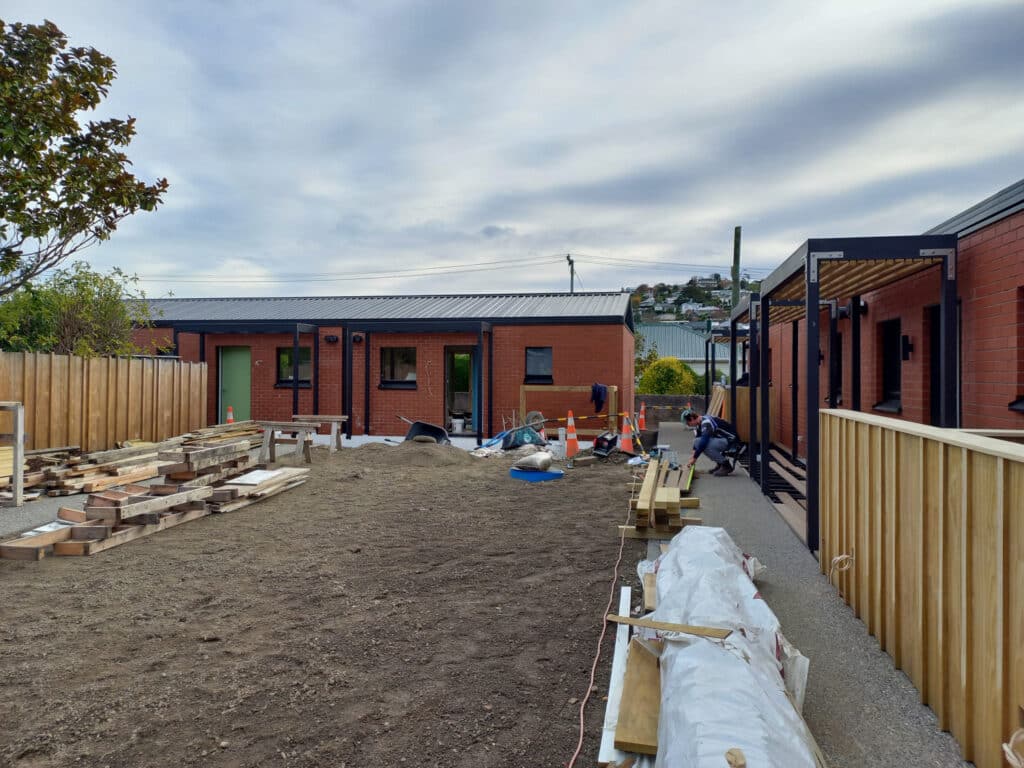
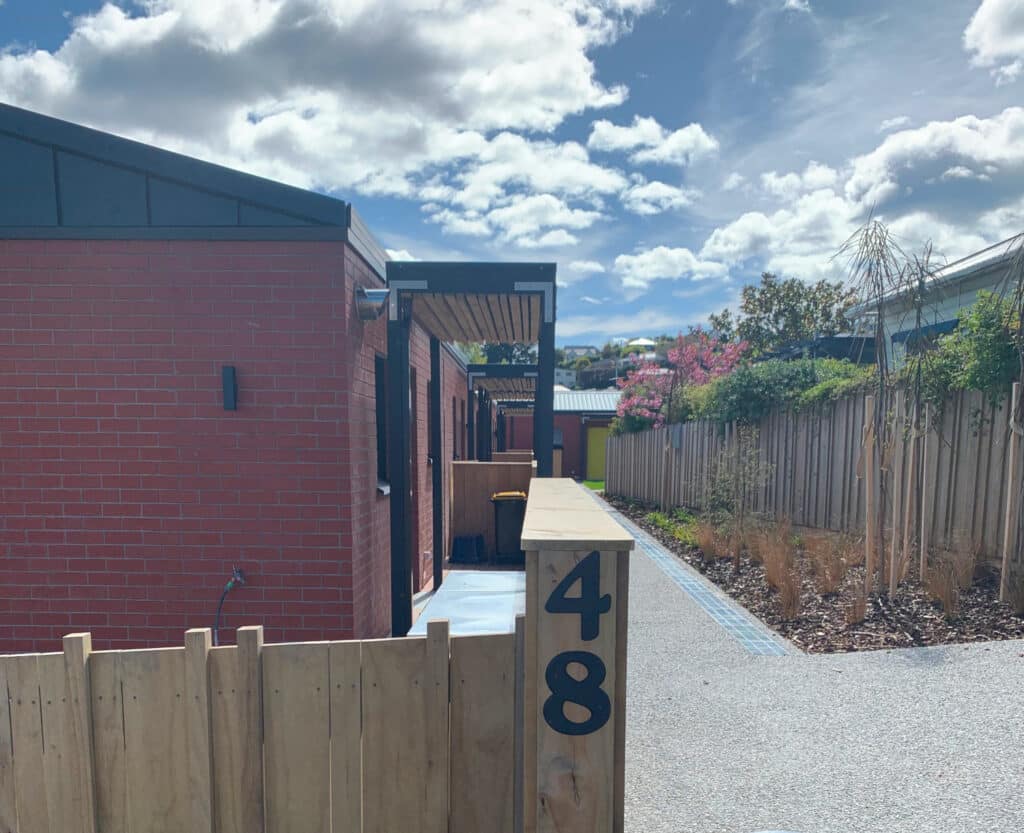
About the City Shapers Series
The City Shapers Series is a collection of interviews with some of Property Council’s most prominent members. The series is about showcasing the people in property – the city shapers who lead extraordinary teams, develop exemplary projects and demonstrate the very best of the New Zealand property industry.
We aim to highlight the property industry’s role as an important contributor to New Zealand’s economy and our members as ‘city shapers’, building communities for Kiwis to live, work, play and shop.
Author: Felicity Wolfe

